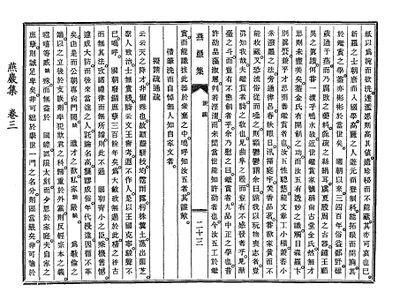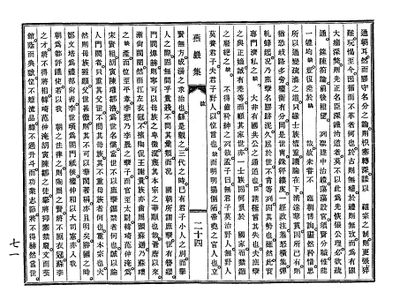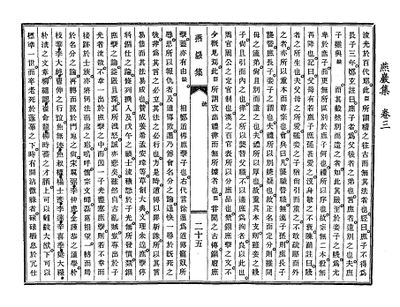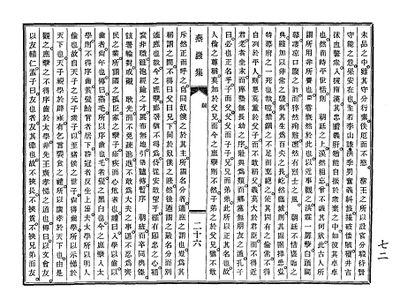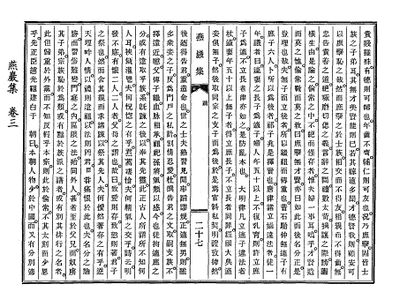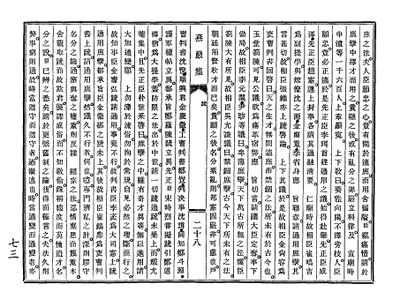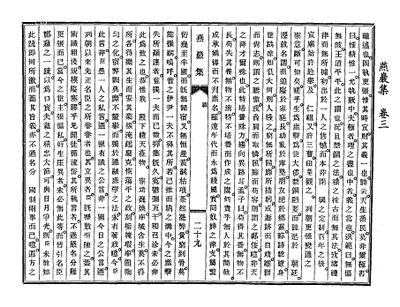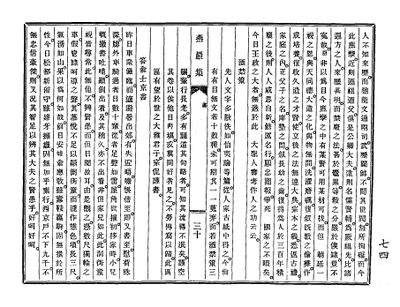(Translation) 朴趾源 擬請疏通疏
| Primary Source | ||
|---|---|---|
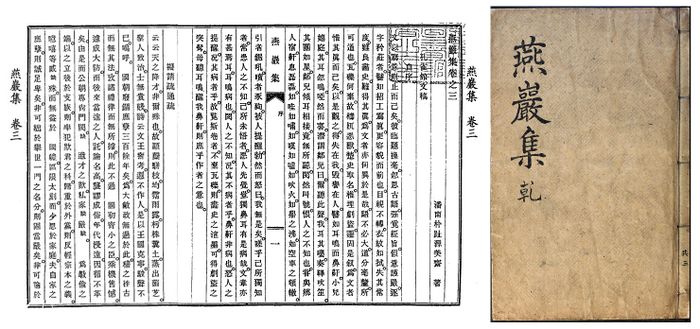 |
Title | |
| English | Status change in late Joseon Society | |
| Chinese | 擬請疏通疏 | |
| Korean(RR) | 의청소통소(Uicheongsotongso) | |
| Text Details | ||
| Genre | Literati Writings | |
| Type | ||
| Author(s) | 朴趾源 | |
| Year | 1932 | |
| Source | ||
| Key Concepts | ||
| Translation Info | ||
| Translator(s) | Participants of 2018 Summer Hanmun Workshop (Advanced Translation Group) | |
| Editor(s) | ||
| Year | 2018 | |
목차
- 1 Introduction
- 2 Original Script
- 3 Discussion Questions
- 4 Further Readings
- 5 References
- 6 Translation
- 6.1 (sample) : Jaeyoon Song
- 6.2 Student 1 : (Ren, Ruixin)
- 6.3 Student 2 : (Write your name)
- 6.4 Student 3 : (Write your name)
- 6.5 Student 4 : (Write your name)
- 6.6 Student 5 : Inho Choi
- 6.7 Student 6 : (Write your name)
- 6.8 Student 7 : (Write your name)
- 6.9 Student 8 : Younès M'Ghari
- 6.10 Student 9 : (Write your name)
- 6.11 Student 10 : (Write your name)
- 6.12 Student 11 : (Write your name)
- 6.13 Student 12 : (Write your name)
- 6.14 Student 13 : (Write your name)
- 6.15 Student 14 : (Write your name)
Introduction
Original Script
Discussion Questions
Further Readings
References
Translation
(sample) : Jaeyoon Song
- Discussion Questions:
Student 1 : (Ren, Ruixin)
云云天之降才。非爾殊也。故顚蘖騈枝。均霑雨露。朽株糞土。蒸出菌芝。聖人致治。士無貴賤。 The heaven bestow talent on everything equally. As a result, the leaves on the top of the tree and paralleled branches get same amount of rain and dew, rotten trunk and dirt could be the breeding ground of glossy ganoderma. Sages keep the country politically stable, and there is neither lowliness nor nobleness between ministers.
詩云文王壽考。遐不作人。是以王國克寧。駿聲不已。 诗经 says: king文王 lived a long life, his appointments of the elite were quiet appropriate. Therefore, the kingdom was able to reach at a peaceful status. The good reputation of the king lasts for a long time.
嗚呼。國朝廢錮庶孽三百餘年矣。爲大敝政無過於此。稽之往古而無其法。攷諸禮律而無所據。則此不過國初宵小之臣。乘機售憾。遽成大防。而後來當途之人。託論名高。襲謬成俗。年代浸遠。因循不革矣。 Alas, our country has banned 庶孽 for over 300 years. No maladministration can be worse than this. If we look back to the ancient times, there are precedents of this action. If we check with the law and discipline rite, there aren't any bases of this action too. This is just some hypocrites乘機售憾 and finally became a major discrimination. After that, people who are in power託論名高,and this misconduct was inherited as a custom, never ever abolished. 由是而公朝專尙門閥。缺 遺才之歎。私家 缺 嚴 缺。爲斁倫之端。以之立後於支族。則率犯欺君之科。歸重於外黨。則反輕宗本之義。噫嘻等威 缺 殊。而無益於 國軆。區限太刻。而少恩於家庭。夫自家之庶孽。則誠足卑矣。非可絀於擧世一門之名分。則固當嚴矣。非可論於通朝耳。然而膠守名分之論。則枳塞轉深。諉以 祖宗之制。則更張猝難。玩愒至今。因循而不革者何也。於古則無稽。於禮則無攷。而爲有國大痼深弊。則先正名臣深識治道者。莫不以此爲先恢張公理。必欲疏通。 筵陳箚論。前後相望。 列聖建中治軆。蕩蕩設官。須賢分職。惟能一軆均 缺。豈復差於 缺 哉。故未甞不 臨朝博詢。䀌然矜惜。思所以通變疏滌之道。只緣士族權重。議論在下。淸途華貫。固所已有。則猶恐歧路多旁。權衡有分。同是世胄。
- Discussion Questions:
Student 2 : (Write your name)
- Discussion Questions:
Student 3 : (Write your name)
夫然則母族雖顯。父世甚微。則其不可以華閥著稱。亦且明矣。勝國之時。鄭文培爲禮部尙書。李世璜爲閤門祇侯。權仲和以大司憲。亦入我朝爲都評議使。若以我朝之法律之。則陶周之賢。將不廁衣冠。蘇李之才。將不得將相。韓琦范仲淹胡寅陳鄒之徒。擧將抑塞禁廢。文而芸舘。蔭而典獄。位不離流品。祿不過升斗。而功業志節。將不得赫然當世。流光於百代耶。此臣所謂稽之往古而無其法者也。經曰。庶子不得爲長子三年。鄭玄註曰。庶子者。爲父後者之弟也。言庶者。遠別之也。夫庶子雖與缺。而其截然別而遠之者。如此其嚴。至於妾子之賤。爲尤卑於庶子。而更無所區別於庶子何也。禮所以序也。故宗無二本。殺無再降也。記曰。父母有若庶子庶孫甚愛之。沒身敬之不衰。陳澔註曰。賤者之所生也。夫父母之所愛。雖妾之子猶尙引而重之。不敢疏略而外之者。亦所以重本而尊宗也。會典曰。凡襲職替職。無適子孫。則庶長子襲替。庶長子。妾子之謂也。夫禮所以別嫌疑也。故正名而定分。則雖同母之適弟。尙且別而遠之也。
Even though his mother was from a prestige family, as his father had a very low status, he cannot be called (from a) prominent clan. This is also crystal clear. In its previous dynasty, Zheng Wenpei was appointed the Minister of Rituals, Li Shiheng was Audience Usher, and Quan Zhonghe was designated as great keeper of the fundamental laws, who held the post of commenter when being dispatched to our state.
- Discussion Questions:
Student 4 : (Write your name)
- Discussion Questions:
Student 5 : Inho Choi
4. 夫禮所以厚也。故重其本支。則雖妾之賤子。尙且引而內之也。律之所以襲替父職。不以適庶爲拘者。良以此也。周官周公之定官制也。漢之百官表所以分庶品也。禁錮庶孽之文。不少槪見焉。此臣所謂攷諸禮律而無所據者也。臣甞聞之古傳。錮廢庶孽。葢亦有由 缺。相鄭道傳庶孽子也。右代言徐選爲道傳寵奴所辱。思所以報仇者。及道傳敗。選乃傅會名分之論。逞快一辱於旣死之後。非爲其言之必立。其法之必行也。方是時。道傳以罪新誅。所以其言易售而其法易成也。贊成姜希孟安瑋等。草創大典。文理未遑。
5.(My own numbering..) 庶孽停科錮仕之論。條列撰入。及戊午之禍。士流積怨於子光。無所發憤。禁錮庶孽之論。益嚴且深。其所洩怒。誠亦悲矣。雖然。自古亂賊。豈專出於子光者流哉。不幸一出於庶孽之中。而因一子光盡塞庶孽。則若不幸而接跡於士族。亦將何法而處之耶。嗚呼。儒宗文師。磊落相望。一轉而局於名分之論。再轉而屈於門地之尙。宋翼弼,李仲虎,金謹恭之道學。朴枝華,李大純,曺伸之行誼。魚無迹,魚叔權,楊士彥,李達,辛喜季,梁大樸,朴淲之文章。柳祖認,崔命龍,柳時蕃之才諝。
As to depriving the bastards of the qualification for civil examination blocking their path to the employment, the list of clauses are inserted in the writing(what writing?). When it comes to the tragedy of the year of Muo, the literati(how do we translate 士?) accumulated resentment toward Ryu Jagwang and had no recourse for relieving its anger. It became more severe and deeper. that with which they relieved their anger was also truly sad(probably referring to the policy toward the bastards). However, how could the traitors only be from the likes of Ryu Jagwang since ancient times? Unfortunately, one such traitor appeared from those who are sons of concubines, and due to this one Jagwang, the path of the bastards are completely blocked. If the would be traitor unfortunately steps into the likes of the families of literati(Does 士族 implies kinship relations?), by what law in the future would one deal with this? Ah! the holder of Confucian heritage and the literary master succeed each other with abundance. Upon pivoting once, one bends on one's separate doctrine. Upon pivoting twice, one is carried away by that which one's pedigree lineage esteems. The Way Leaning of Songikpil(Songikp'il), Ijungho, and Gimgeungong(Kimgŭn'gong), Enacting Righteousness of Bak Jihwa(Pak Chihwa), I Daesun and JoSin(Cho Shin), the Letter of Eo Mujeok(Ŏ mujŏk), Eo Sukgwon(ŏ sukkwŏn), Yang Saeon(yang saŏn), I Dal, Sin Huigye(shin hŭigye), Yang Daebak, and Bakpyo(pak p'yo), and the Brilliance of Ryu join Choe Myeongnyong(ch'oe myŏngnyong), and Ryu Sibeon(ryu shibŏn). ....
- Discussion Questions:
Student 6 : (Write your name)
- Discussion Questions:
Student 7 : (Write your name)
- Discussion Questions:
Student 8 : Younès M'Ghari
- Translations:
8. 其無才美賢能則已。若其諒直多聞。才德賢我。則顧安可以庶孽恥之哉。然而庶孽之於士族。相交而不得友。相親而不得齒。無忠告責善之道。絶琢磨切偲之義。言辭之間。禮數太苛。揖讓之際。謗讟橫生。由是論之。倫常之中。不絶而僅存者。惟夫婦一事耳。嗚乎。才賢遺而莫之恤。倫常斁而莫之救。曰庶孽無才賢。亦曰如此而後名分正。是豈理也哉。夫無子而立後者。所以繼祖而傳重也。昔石駘仲無適子有庶子六人。卜所以爲後者。祁子兆是擇賢也。唐律諸立嫡違法者。徒一年。議者曰。適妻之長子爲適子。婦人年五十以上。不復乳育。則許立庶子爲適。不立長者律亦如之。是防亂本也。 大明律凡立適子違法者杖。適妻年五十以上無子者。得立庶長子。不立長者同罪。經國大典適妾俱無子。然後取同宗之支子而爲後。於是焉官斜私契。明證攷據。然後廼得告君。重造命也。世之士夫熟習見聞。率蹈謬規。正適無男。則雖多衆妾之子。反爲門戶之私計。割情忍愛。杜撰告君之文。取嗣支族。不擇遠近。噫。父傳子繼。血脉相承。祖祀孫將。氣類以感。今也徒拘適庶之分。或有遠取乎族。系旣踈之後。以奉其先靈。此正古人所謂所不知何人耳。
He does not have either talent or grace, he is just sage and able. If he expects true and plurial knowledge, he has to give himself talent and virtue. Therefore 틀:Couldn't 틀:Gu'an be ashamed from it as a non legitimate son? However when the non legitimate sons become cholar-officials, they exchange but do not gain friendship, they are initimate but do not gain 틀:Age. They do not have the way of heartfelt advices and mutual learning of the virtuous.
1 顧安 (pinyin: Gù'ān; 1289-1365): a famed Chinese painter in the Yuan Dynasty.
- Discussion Questions:
Student 9 : (Write your name)
- Discussion Questions:
Student 10 : (Write your name)
- Discussion Questions:
Student 11 : (Write your name)
- Discussion Questions:
Student 12 : (Write your name)
- Discussion Questions:
Student 13 : (Write your name)
- Discussion Questions:
Student 14 : (Write your name)
- Discussion Questions:
